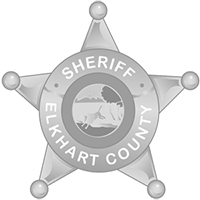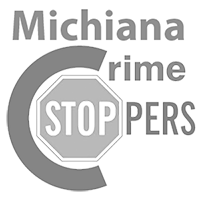CRASH REPORTS
Starting December 1, 2022, all crash reports must be obtained online, and will no longer be available for purchase through our Records Division. The State of Indiana contracts with BuyCrash.com to make reports available for purchase, and the Elkhart Police Department has no input on cost or associated fees when buying online.
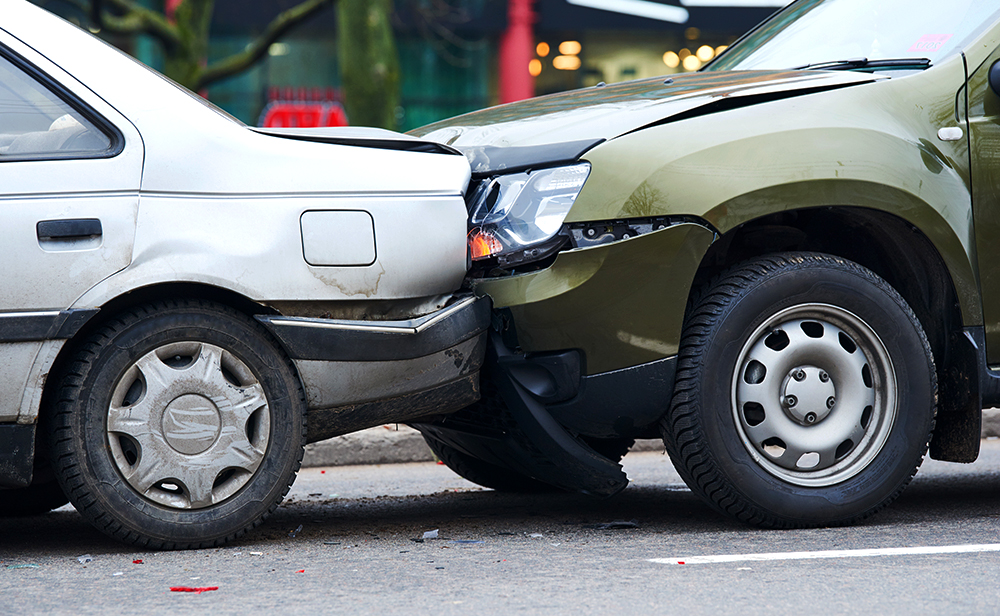
RECORDS DEPARTMENT
The Elkhart Police Department records department is open from 8 a.m. to 5 p.m. Monday through Friday. Individuals may request information at any time, subject to Indiana Code 5-14-3. Click HERE to fill out a public records request on the City of Elkhart Public Record Request portal. All Records requests must now be submitted through that portal.
**Please note, that the records department only does inked impressions, they do not do any electronic fingerprints**
***The records department does NOT accept $50.00 or $100.00 bills.***
ID Requirements
Fingerprinting
-
US Government issued photo ID
Background Checks
-
Adult
-
US Government issued photo ID
-
Social Security Card
-
Juvenile
-
US Government issued photo ID
-
Must be accompanied by parent or legal guardian with photo ID in any form
-
Birth Certificate (to validate parents ID)
-
Social Security Card
-
Certified guardianship paperwork from the court signed by the Judge.
-
Juvenile Records
-
Juvenile record checks requested either by the individual themselves or another party will be referred to the Elkhart County Juvenile Court System for information regarding any arrest that is on record.

GUN PERMITS
The State of Indiana requires residents wishing to obtain a handgun permit to complete the process through the police department with primary jurisdiction. All applications must be completed ONLINE. As of Oct. 1, 2014, the process was changed.
Local fees – $10 (four-year permit); $40 (non-expired renewal to lifetime permit); $50 (new lifetime permit or renewal of expired permit)
State fees – $30 (four-year permit); $60 (non-expired renewal to lifetime permit); $75 (new lifetime permit or renewal of expired permit)
1. Go online to the Indiana State Police site to fill out the gun permit application. (Most libraries provide Internet access, subject to terms of service.)
2. Schedule an appointment with L1 / MorphoTrust USA to have fingerprints taken. (The records department does not handle fingerprinting for gun permits.)
3. Call the Elkhart Police Department Records Division at (574) 295-7070 and inform staff of your submission of an application with fingerprints. NO VISIT TO THE POLICE STATION IS NECESSARY AT THIS TIME.
4. After the initial review, you will receive a telephone call from the Elkhart Police Department Records Division to come to the station to continue the process. You will be asked to complete and sign a background check waiver at this time.
The records division is located at 175 Waterfall Drive, between 8 a.m and 5 p.m. Monday through Friday (excluding holidays). Please bring the following:
– Cash, check, or money order for the local fee only.
– Driver’s license with current address, Social Security card, L1 / Morpho Trust fingerprint receipt, and (if applicable) previous handgun permit. Records will make copies of these items for the background check.
The State of Indiana will email the applicant confirmation that their application has been transferred to them after the application has been approved locally.
The Indiana State Police make all final determinations, generally within 12 weeks, and issue permits. Please contact the Indiana State Police with any questions regarding denial, or to obtain a replacement permit if lost.
If your home address has a five-digit street number, you are a county resident and you must complete the process through the Elkhart County Sheriff’s Department, (574) 891-2300.
SALVAGE VEHICLE INSPECTION
Individuals wanting to request an Elkhart Police Department officer for the purpose of a salvage vehicle inspection should complete the following form. Upon submission, the requesting individual will be contacted with more information, including a window of time for the inspection.
Salvage Vehicle Inspection Request
Additionally, a requesting individual must complete the owner and vehicle sections of the state of Indiana’s Salvage Motor Vehicle Restoration form
prior to meeting with the EPD officer. (Link will open as a PDF that can be filled online and printed.)
PRESCRIPTION DRUG DROP-OFF
The Elkhart Police Department and other local law enforcement agencies provide a safe way for residents to dispose of unused, expired or unwanted prescription drugs.
The drop box in the lobby of the Elkhart Police Department, 175 Waterfall Drive, is accessible between 8 a.m. and 8 p.m. daily.
The drop box cannot accept syringes or liquids.
Police officers transport the contents of the drop box to a secure location for destruction. The process is friendly to the environment.
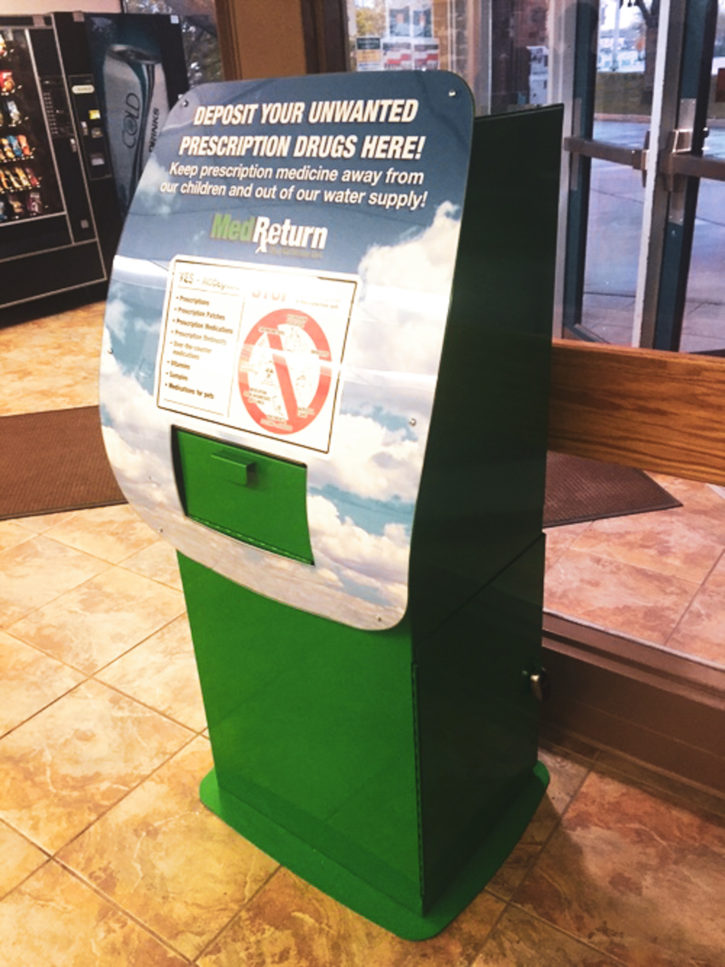
Medical Device and Drug Disposal
Pills, patches and needles can pose unintended and potentially fatal threats if they aren’t disposed of properly. That’s why authorities created regulations for safe disposal of prescription drugs and medical devices.
All expired, unwanted or unused drugs and devices, including prescription pills, liquids, patches and over-the-counter medicines, inhalers and injectable products, should be disposed of as quickly and securely as possible. The goal is to help reduce the chance of accidental or intentional exposure.
The U.S. Drug Enforcement Administration and the U.S. Food and Drug Administration provide guidelines and regulations for safe disposal of all unused medicines and potentially dangerous devices, such as syringes used to administer certain medicines.
The rules are intended to prevent:
- Harm to children, pets and others
- Accidental overdose
- Medicine cabinet mix-ups
- Abuse or misuse, especially by teens and young adults
- Harm to the environment, especially when disposed of improperly (i.e. pouring certain liquid medicines down the drain)
Drug Disposal Sites and Events
The DEA works with local governments and private entities to provide safe drug disposal opportunities for the public. You can find DEA-authorized collectors online.
Local governments and law enforcement agencies also participate in drug-disposal events. More than 4,200 local governments across the country participated in the DEA’s last National Prescription Drug Take Back Day in November.
Did You Know
Consumers got rid of a record 912,305 pounds of unwanted pills during National Prescription Drug Take Back Day in November 2017.
The public dropped off a record 456 tons of medications at 5,300 collection sites. That marked a six-ton increase from the previous drug-disposal event earlier in 2017.
If a patient has questions regarding the safe disposal of a medication or device, they should contact their pharmacist. Local health departments can also assist with instructions for disposal or the retrieval of sharps disposal containers. The local waste management service may be able to answer questions about whether certain drugs or devices can be disposed of in a person’s household trash.
Steps for Household Trash Disposal
Most medicines, including prescription and over-the-counter drugs, pills, liquids, creams, etc., can be thrown into the household trash, unless otherwise instructed on the label. To properly throw away used or expired medications in the kitchen or bathroom garbage cans, there are a few steps people should take:
Step 1
Mix any leftover medicines with an inedible substance such as dirt, kitty litter or used coffee grounds. The point is to make the mixture unappealing to both children and animals.
Step 2
Place the mixture in closed container, such as a sealable plastic bag.
Step 3
Throw the container with the mixture into the household trash.
Step 4
Use a permanent marker to black out all personal information on prescription labels of empty pill bottles or other medicine packaging. Then discard the materials.
Disposing of Inhaler Products
Inhalers and other aerosol products can pose an environmental concern if they are punctured or thrown into a fire or incinerator during disposal.
Inhalers are portable devices that administer a type of drug that is to be breathed in. These products are often used by patients who have asthma or other breathing problems, such as chronic obstructive pulmonary disease (COPD).
Common inhalers include:
- Short-acting bronchodilators, such as albuterol (brand names Proventil, Ventolin and Xopenex)
- Long-acting beta agonists (brand names Advair and Serevent)
- Inhaled steroids (brand names Flovent and Qvar)
When disposing of inhalers, people should read instructions on the labeling and follow local regulations and laws regarding the disposal of aerosol products. Most inhalers can be safely thrown into the household trash or recycled.
Disposing of Injectable Products
Unused or expired injectable products, such as those used to take insulin for diabetic patients, can be safely disposed of using a sharps disposal container. If a person needs assistance obtaining such a container, contacting your pharmacist that dispensed the injectable medicine is a good place to start.
Injectable products include:
- Needles and pen needles
- Syringes
- Auto injectors and pens (pre-filled devices)
- Vials containing an injectable product
Short-, rapid-, intermediate- and long-acting insulin medicines, including Humulin, NovoLog, FlexPen, Novolin, Levemir, Lantus and Tresiba, are all injectable products that require safe disposal via a sharps disposal container.
Other injectable products may include:
- Fertility drugs (follicle stimulating hormone – FSH, Pergonal, Metrodin, Pregnyl, Novarel, Lupron, Synarel and Antagon)
- Antibiotics (Apo-ampi)
- Allergy medicines (Dimetapp – brompheniramine maleate)
- Anti-anxiety medicines (Ativan – lorazepam and Librium – chlordiazepoide)
- Antipsychotics (Thorazine – chlorpromazine)
- Testosterone (Testopel, Depo-Testosterone and Aveed)
Sharps Disposal Containers
A sharps container is designed for disposal of sharps waste
Sharps disposal containers should only be filled about three-quarters full before the container is disposed of. Sharps containers should never be overfilled. All injectable products should be safely and securely out-of-sight and out of immediate reach in a sharps disposal container.
Sharps disposal guidelines may vary depending on where a person lives. Patients should follow local guidelines regarding the safe disposal of sharps containers.
Whenever possible, a patient should attempt to secure a sharps disposal container with a mail-back box, which allows for injectable products to be returned after use to a company for disposal.
People can check with their local trash removal service or health department to learn about safe methods for disposal of sharps containers where they live.
When Is It Safe to Flush?
Some medicines can be especially harmful to others and therefore, labeling may instruct patients to immediately flush these medications when they are no longer needed, or if they’ve expired and will not be used.
The FDA has provided a list of medicines recommended for disposal by flushing.
Some of these medications include:
- Belbuca
- Demerol
- Methadone Hydrochloride
- Morphine Sulfate
- Opana and Opana ER
- Oxycodone Hydrochloride
- Oxycontin
- Percocet
- Percodan
- Xartemis XR
These medications, among others, have been found to cause harm, and in some cases cause fatalities, when exposure, sometimes just one dose, occurs in a person for whom the medicine was not prescribed. To prevent accidental exposure or ingestion of these substances by children, pets or others, it is recommended that these medicines be flushed down the toilet when another means of safe disposal by a DEA-authorized collector is not available.
Environmental Concerns
The FDA has acknowledged that there are concerns about the small levels of drugs that may be found in surface water, such as rivers and lakes, and in drinking water supplies, when medicines are flushed as a means of disposal. An environmental assessment expert at the FDA, Raanan Bloom, pointed out, however, that the majority of water contamination occurs when people take the drugs and naturally pass them from their bodies.
The FDA maintains that there has been no sign of environmental effects caused by flushing recommended drugs. However, because the federal agency takes this concern seriously, its staff published a paper to evaluate the environmental and human health risks associated with flushing 15 different medicines. The results confirmed that most of the medicines presented a low risk to the environment, and that all 15 medicines presented negligible risk to humans through indirect exposure, such as ingestion of water and fish.
The known risk of harm or death to humans from accidental exposure to these medicines, therefore, far outweighs any potential risk to humans or the environment from disposal by flushing, as concluded by the FDA.
Disposing of Fentanyl Patches
The FDA has special instructions for disposing of fentanyl patches via flushing. Young children have died or become seriously ill following accidental exposure to the skin patch (sold under brand name Duragesic) that has a powerful opioid pain reliever on its surface. This exposure can occur when a child comes into contact with the patch, especially patches that have been discarded in household trash receptacles.
An overdose of fentanyl can occur if the child puts the patch in his or her mouth or even when applied to the skin. Even after a patch has been worn for the full three days for which it is prescribed, the used patch can retain more than 50 percent of the fentanyl, according to the FDA.
Signs and symptoms of an overdose can include:
- Slowed breathing
- High levels of carbon dioxide in the blood
- Lethargy (lack of energy)
- Death
The FDA is aware of 32 cases of accidental exposure to fentanyl since 1997. Most of these exposures occurred in children under 2, resulting in 12 deaths and 12 hospitalizations. These cases led to the FDA issuing two public health communications, one in 2005 and another in 2007, as to the dangers of accidental exposure to fentanyl, especially in children.
Therefore, the FDA has included fentanyl patches to the list of medicines that should be flushed down the toilet when no longer needed. The FDA recommends disposing of the patches by first folding them in half with the sticky sides together, and then flushing them down the toilet to completely eliminate the risk of harm to people in the home.
Compton, K. (2018, July 26). Medical Device and Drug Disposal. Retrieved from https://www.drugwatch.com/health/medical-device-drug-disposal/
GRAFFITI WAIVER FORM
-
The police report will be sent to the Building Grounds division of the Office of Parks & Cultural Resources.
-
The Parks & Cultural Resources staff will contact the property owner to ensure a waiver of liability has been signed allowing the Buildings & Grounds staff to enter private property for graffiti removal.
-
The waiver of liability can be signed in a number of ways:
-
The property owner can request the waiver be mailed and would then mail it back.
-
The property owner can download the waiver and mail it back.
-
The property owner can request the waiver be e-mailed and then e-mail it back.
-
The property owner can stop at the Municipal Annex, 201 S. Second Street, Elkhart, to sign the waiver in person.
-
-
If the property owner refuses to remove the graffiti, sign the waiver, or allow the city staff to remove the graffiti, Code Enforcement will take over the process and, in accordance with the City’s nuisance ordinance, may levy a fine from $100 up to $2,500.
-
If the property owner is the City of Elkhart, immediate removal will occur.
CRASH REPORTS
Starting December 1, 2022, all crash reports must be obtained online, and will no longer be available for purchase through our Records Division. The State of Indiana contracts with BuyCrash.com to make reports available for purchase, and the Elkhart Police Department has no input on cost or associated fees when buying online.

RECORDS DEPARTMENT
The Elkhart Police Department records department is open from 8 a.m. to 5 p.m. Monday through Friday. Individuals may request information at any time, subject to Indiana Code 5-14-3. Click HERE to fill out a public records request on the City of Elkhart Public Record Request portal. All Records requests must now be submitted through that portal.
**Please note, that the records department only does inked impressions, they do not do any electronic fingerprints**
***The records department does NOT accept $50.00 or $100.00 bills.***
ID Requirements
Fingerprinting
-
US Government issued photo ID
Background Checks
-
Adult
-
US Government issued photo ID
-
Social Security Card
-
Juvenile
-
US Government issued photo ID
-
Must be accompanied by parent or legal guardian with photo ID in any form
-
Birth Certificate (to validate parents ID)
-
Social Security Card
-
Certified guardianship paperwork from the court signed by the Judge.
-
Juvenile Records
-
Juvenile record checks requested either by the individual themselves or another party will be referred to the Elkhart County Juvenile Court System for information regarding any arrest that is on record.

GUN PERMITS
The State of Indiana requires residents wishing to obtain a handgun permit to complete the process through the police department with primary jurisdiction. All applications must be completed ONLINE. As of Oct. 1, 2014, the process was changed.
Local fees – $10 (four-year permit); $40 (non-expired renewal to lifetime permit); $50 (new lifetime permit or renewal of expired permit)
State fees – $30 (four-year permit); $60 (non-expired renewal to lifetime permit); $75 (new lifetime permit or renewal of expired permit)
1. Go online to the Indiana State Police site to fill out the gun permit application. (Most libraries provide Internet access, subject to terms of service.)
2. Schedule an appointment with L1 / MorphoTrust USA to have fingerprints taken. (The records department does not handle fingerprinting for gun permits.)
3. Call the Elkhart Police Department Records Division at (574) 295-7070 and inform staff of your submission of an application with fingerprints. NO VISIT TO THE POLICE STATION IS NECESSARY AT THIS TIME.
4. After the initial review, you will receive a telephone call from the Elkhart Police Department Records Division to come to the station to continue the process. You will be asked to complete and sign a background check waiver at this time.
The records division is located at 175 Waterfall Drive, between 8 a.m and 5 p.m. Monday through Friday (excluding holidays). Please bring the following:
– Cash, check, or money order for the local fee only.
– Driver’s license with current address, Social Security card, L1 / Morpho Trust fingerprint receipt, and (if applicable) previous handgun permit. Records will make copies of these items for the background check.
The State of Indiana will email the applicant confirmation that their application has been transferred to them after the application has been approved locally.
The Indiana State Police make all final determinations, generally within 12 weeks, and issue permits. Please contact the Indiana State Police with any questions regarding denial, or to obtain a replacement permit if lost.
If your home address has a five-digit street number, you are a county resident and you must complete the process through the Elkhart County Sheriff’s Department, (574) 891-2300.
SALVAGE VEHICLE INSPECTION
Individuals wanting to request an Elkhart Police Department officer for the purpose of a salvage vehicle inspection should complete the following form. Upon submission, the requesting individual will be contacted with more information, including a window of time for the inspection.
Salvage Vehicle Inspection Request
Additionally, a requesting individual must complete the owner and vehicle sections of the state of Indiana’s Salvage Motor Vehicle Restoration form prior to meeting with the EPD officer. (Link will open as a PDF that can be filled online and printed.)
PRESCRIPTION DRUG DROP-OFF
The Elkhart Police Department and other local law enforcement agencies provide a safe way for residents to dispose of unused, expired or unwanted prescription drugs.
The drop box in the lobby of the Elkhart Police Department, 175 Waterfall Drive, is accessible between 8 a.m. and 8 p.m. daily.
The drop box cannot accept syringes or liquids.
Police officers transport the contents of the drop box to a secure location for destruction. The process is friendly to the environment.
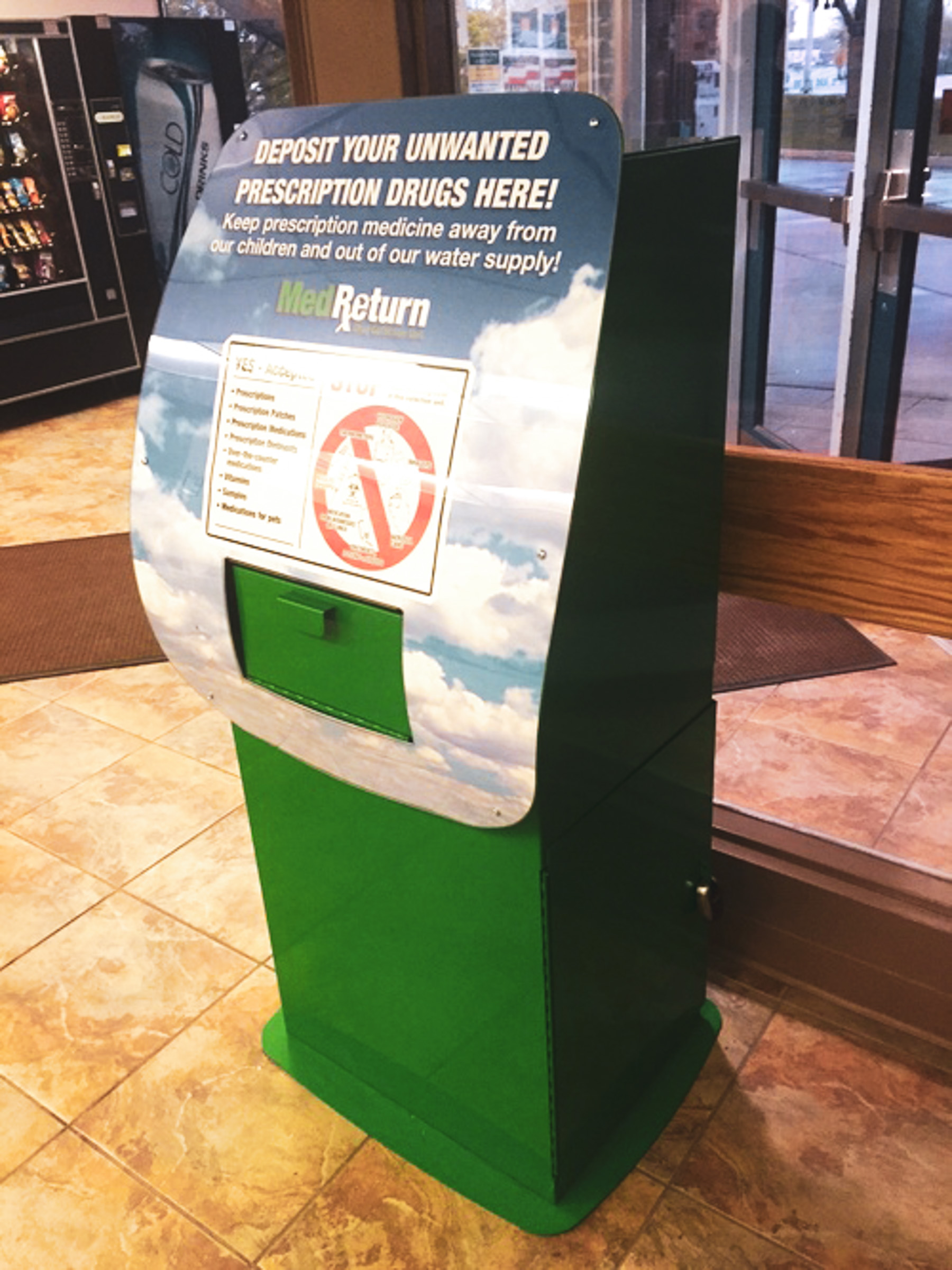
Medical Device and Drug Disposal
Pills, patches and needles can pose unintended and potentially fatal threats if they aren’t disposed of properly. That’s why authorities created regulations for safe disposal of prescription drugs and medical devices.
All expired, unwanted or unused drugs and devices, including prescription pills, liquids, patches and over-the-counter medicines, inhalers and injectable products, should be disposed of as quickly and securely as possible. The goal is to help reduce the chance of accidental or intentional exposure.
The U.S. Drug Enforcement Administration and the U.S. Food and Drug Administration provide guidelines and regulations for safe disposal of all unused medicines and potentially dangerous devices, such as syringes used to administer certain medicines.
The rules are intended to prevent:
- Harm to children, pets and others
- Accidental overdose
- Medicine cabinet mix-ups
- Abuse or misuse, especially by teens and young adults
- Harm to the environment, especially when disposed of improperly (i.e. pouring certain liquid medicines down the drain)
Drug Disposal Sites and Events
The DEA works with local governments and private entities to provide safe drug disposal opportunities for the public. You can find DEA-authorized collectors online.
Local governments and law enforcement agencies also participate in drug-disposal events. More than 4,200 local governments across the country participated in the DEA’s last National Prescription Drug Take Back Day in November.
Did You Know
Consumers got rid of a record 912,305 pounds of unwanted pills during National Prescription Drug Take Back Day in November 2017.
The public dropped off a record 456 tons of medications at 5,300 collection sites. That marked a six-ton increase from the previous drug-disposal event earlier in 2017.
If a patient has questions regarding the safe disposal of a medication or device, they should contact their pharmacist. Local health departments can also assist with instructions for disposal or the retrieval of sharps disposal containers. The local waste management service may be able to answer questions about whether certain drugs or devices can be disposed of in a person’s household trash.
Steps for Household Trash Disposal
Most medicines, including prescription and over-the-counter drugs, pills, liquids, creams, etc., can be thrown into the household trash, unless otherwise instructed on the label. To properly throw away used or expired medications in the kitchen or bathroom garbage cans, there are a few steps people should take:
Step 1
Mix any leftover medicines with an inedible substance such as dirt, kitty litter or used coffee grounds. The point is to make the mixture unappealing to both children and animals.
Step 2
Place the mixture in closed container, such as a sealable plastic bag.
Step 3
Throw the container with the mixture into the household trash.
Step 4
Use a permanent marker to black out all personal information on prescription labels of empty pill bottles or other medicine packaging. Then discard the materials.
Disposing of Inhaler Products
Inhalers and other aerosol products can pose an environmental concern if they are punctured or thrown into a fire or incinerator during disposal.
Inhalers are portable devices that administer a type of drug that is to be breathed in. These products are often used by patients who have asthma or other breathing problems, such as chronic obstructive pulmonary disease (COPD).
Common inhalers include:
- Short-acting bronchodilators, such as albuterol (brand names Proventil, Ventolin and Xopenex)
- Long-acting beta agonists (brand names Advair and Serevent)
- Inhaled steroids (brand names Flovent and Qvar)
When disposing of inhalers, people should read instructions on the labeling and follow local regulations and laws regarding the disposal of aerosol products. Most inhalers can be safely thrown into the household trash or recycled.
Disposing of Injectable Products
Unused or expired injectable products, such as those used to take insulin for diabetic patients, can be safely disposed of using a sharps disposal container. If a person needs assistance obtaining such a container, contacting your pharmacist that dispensed the injectable medicine is a good place to start.
Injectable products include:
- Needles and pen needles
- Syringes
- Auto injectors and pens (pre-filled devices)
- Vials containing an injectable product
Short-, rapid-, intermediate- and long-acting insulin medicines, including Humulin, NovoLog, FlexPen, Novolin, Levemir, Lantus and Tresiba, are all injectable products that require safe disposal via a sharps disposal container.
Other injectable products may include:
- Fertility drugs (follicle stimulating hormone – FSH, Pergonal, Metrodin, Pregnyl, Novarel, Lupron, Synarel and Antagon)
- Antibiotics (Apo-ampi)
- Allergy medicines (Dimetapp – brompheniramine maleate)
- Anti-anxiety medicines (Ativan – lorazepam and Librium – chlordiazepoide)
- Antipsychotics (Thorazine – chlorpromazine)
- Testosterone (Testopel, Depo-Testosterone and Aveed)
Sharps Disposal Containers
A sharps container is designed for disposal of sharps waste
Sharps disposal containers should only be filled about three-quarters full before the container is disposed of. Sharps containers should never be overfilled. All injectable products should be safely and securely out-of-sight and out of immediate reach in a sharps disposal container.
Sharps disposal guidelines may vary depending on where a person lives. Patients should follow local guidelines regarding the safe disposal of sharps containers.
Whenever possible, a patient should attempt to secure a sharps disposal container with a mail-back box, which allows for injectable products to be returned after use to a company for disposal.
People can check with their local trash removal service or health department to learn about safe methods for disposal of sharps containers where they live.
When Is It Safe to Flush?
Some medicines can be especially harmful to others and therefore, labeling may instruct patients to immediately flush these medications when they are no longer needed, or if they’ve expired and will not be used.
The FDA has provided a list of medicines recommended for disposal by flushing.
Some of these medications include:
- Belbuca
- Demerol
- Methadone Hydrochloride
- Morphine Sulfate
- Opana and Opana ER
- Oxycodone Hydrochloride
- Oxycontin
- Percocet
- Percodan
- Xartemis XR
These medications, among others, have been found to cause harm, and in some cases cause fatalities, when exposure, sometimes just one dose, occurs in a person for whom the medicine was not prescribed. To prevent accidental exposure or ingestion of these substances by children, pets or others, it is recommended that these medicines be flushed down the toilet when another means of safe disposal by a DEA-authorized collector is not available.
Environmental Concerns
The FDA has acknowledged that there are concerns about the small levels of drugs that may be found in surface water, such as rivers and lakes, and in drinking water supplies, when medicines are flushed as a means of disposal. An environmental assessment expert at the FDA, Raanan Bloom, pointed out, however, that the majority of water contamination occurs when people take the drugs and naturally pass them from their bodies.
The FDA maintains that there has been no sign of environmental effects caused by flushing recommended drugs. However, because the federal agency takes this concern seriously, its staff published a paper to evaluate the environmental and human health risks associated with flushing 15 different medicines. The results confirmed that most of the medicines presented a low risk to the environment, and that all 15 medicines presented negligible risk to humans through indirect exposure, such as ingestion of water and fish.
The known risk of harm or death to humans from accidental exposure to these medicines, therefore, far outweighs any potential risk to humans or the environment from disposal by flushing, as concluded by the FDA.
Disposing of Fentanyl Patches
The FDA has special instructions for disposing of fentanyl patches via flushing. Young children have died or become seriously ill following accidental exposure to the skin patch (sold under brand name Duragesic) that has a powerful opioid pain reliever on its surface. This exposure can occur when a child comes into contact with the patch, especially patches that have been discarded in household trash receptacles.
An overdose of fentanyl can occur if the child puts the patch in his or her mouth or even when applied to the skin. Even after a patch has been worn for the full three days for which it is prescribed, the used patch can retain more than 50 percent of the fentanyl, according to the FDA.
Signs and symptoms of an overdose can include:
- Slowed breathing
- High levels of carbon dioxide in the blood
- Lethargy (lack of energy)
- Death
The FDA is aware of 32 cases of accidental exposure to fentanyl since 1997. Most of these exposures occurred in children under 2, resulting in 12 deaths and 12 hospitalizations. These cases led to the FDA issuing two public health communications, one in 2005 and another in 2007, as to the dangers of accidental exposure to fentanyl, especially in children.
Therefore, the FDA has included fentanyl patches to the list of medicines that should be flushed down the toilet when no longer needed. The FDA recommends disposing of the patches by first folding them in half with the sticky sides together, and then flushing them down the toilet to completely eliminate the risk of harm to people in the home.
Compton, K. (2018, July 26). Medical Device and Drug Disposal. Retrieved from https://www.drugwatch.com/health/medical-device-drug-disposal/
GRAFFITI WAIVER FORM
-
The police report will be sent to the Building Grounds division of the Office of Parks & Cultural Resources.
-
The Parks & Cultural Resources staff will contact the property owner to ensure a waiver of liability has been signed allowing the Buildings & Grounds staff to enter private property for graffiti removal.
-
The waiver of liability can be signed in a number of ways:
-
The property owner can request the waiver be mailed and would then mail it back.
-
The property owner can download the waiver and mail it back.
-
The property owner can request the waiver be e-mailed and then e-mail it back.
-
The property owner can stop at the Municipal Annex, 201 S. Second Street, Elkhart, to sign the waiver in person.
-
-
If the property owner refuses to remove the graffiti, sign the waiver, or allow the city staff to remove the graffiti, Code Enforcement will take over the process and, in accordance with the City’s nuisance ordinance, may levy a fine from $100 up to $2,500.
-
If the property owner is the City of Elkhart, immediate removal will occur.




